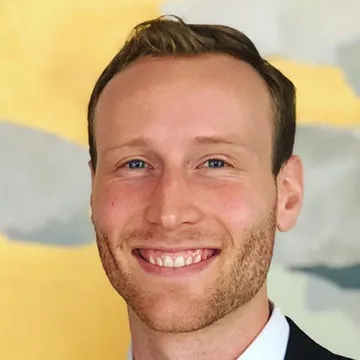P. Jacob Bueno de Mesquita, PhD

Areas of Expertise
Environmental health, epidemiology, climate change mitigation by plant-based foodscapes and decarbonization of the built environment, airborne viral transmission preventionEducation
2021-2023 Postdoc Environmental Epidemiology, Lawrence Berkeley National Lab
2019-2021 Postdoc Environmental Health Science, University of Maryland
2019 PhD Environmental Health Science, University of Maryland
2012-2014 Public Health Associate Fellowship, CDC
2012 BS Human Science & Global Health Certificate, Georgetown University
I’m a trans-disciplinary environmental health scientist-educator focused on improving the environmental conditions to promote human, animal, ecosystem, and planetary health. I deploy exposure science and epidemiologic methods to evaluate the benefits of some of the most promising solutions to foster environmental quality supportive of equitable population wellness.
These solutions include:
- plant-based food scapes for health, ethics, climate, environment, and pandemic prevention
- germicidal ultraviolet light (GUV) and filtration-based air cleaners for efficient air cleaning for pandemic resilience
- built environment decarbonization, in part, through electrification of fossil fuel burning appliance such as stoves and furnaces (e.g., using induction stoves and heat pumps)
The Human Health and Harmony Lab (H3 Lab) for Ecosystem and Pandemic Action
I work closely with developing public health scientist-practitioners to nurture meaningful scholarly and professional growth around the issues that matter to the student community and the world. The social, political, anthropological, and psychological aspects of this public health work with direct policy and social/cultural implications adds excitement and rich opportunities for collaboration and innovation.
Overall, the group focuses on wellness promotion and environmental justice through public health science and practice that fosters intrapersonal harmony, and harmony between humans, animals, and the natural world. We aim to drive societal action by engaging diverse audiences and policy makers to highlight the benefits of using the existing effective but underused population health solutions.
Current Work
The team is currently doing hands-on, applied public health project work, including:
- Promoting a shift in consciousness and action among campus communities about the vast health, climate, ecosystem, and ethical benefits of moving to a plant-based foodscape.
- Investigating and assessing the role of animal agriculture – particularly the impact of domestic poultry on influenza viral evolution – towards the emergence of pandemic viruses, the worsening of existing epidemics, and the impact on wild animals.
- Quantifying, modeling, visualizing, and communicating the health benefits of residential electrification and decarbonization.
- Monitoring indoor environmental quality and evaluating the infection control benefit of germicidal ultraviolet air sanitation and filtration based in-room air cleaners.
- Effectively synthesizing, communicating (including through journalism, graphic design, media, art, film), and advocating for public health initiatives within the local community and the state.
Contact me (jbuenodemesquita@rwu.edu) if you are interested to join this vibrant team of public health research-practitioners. No particular type of experience needed. There is always a way to bring your unique personal/professional background to public health project work.
Current funders: Lawrence Berkeley National Laboratory (US Department of Energy)
A full set of peer reviewed publications can be found at Google Scholar.
A more comprehensive set of prior experiences and teaching can be found in the CV.
About
I’m an environmental health scientist and completed doctoral training with Donald K. Milton, MD, DrPH at the University of Maryland Public Health AeroBiology Laboratory (PHAB Lab). There I quantified airborne respiratory virus transmission, including through a randomized controlled trial (CDC-funded Evaluating Modes of Influenza Transmission-I) and observational studies in university campus communities (DARPA-funded Prometheus), with a focus on identifying biomarkers of contagiousness.
My post-doctoral work with the PHAB Lab included the measurement of SARS-CoV-2 viral shedding into exhaled breath and the impact of facemasks as source control. I joined PandemicProofProductions working under filmmaker and environmental health scientist Dr. Sabrina McCormick to model SARS-CoV-2 risk and develop air cleaning protocols to quell superspreading, which her team enforced on Hollywood film sets during the height of the COVID-19 pandemic. Further post-doctoral training at the Lawrence Berkeley National Laboratory’s Indoor Environment Group focused on the evaluation and summary of the available science on controlling airborne infection in public buildings, including K-12 schools and prisons, within the context of broader efforts to decarbonize and promote wellness in the built environment. I also conducted a meta-analysis to begin to quantify the wide range of respiratory, cardiovascular, and other health benefits from residential building electrification (i.e., moving from gas to induction cooking, or furnaces to heat pumps).
I draw on my early bench lab training in basic biomedical science, colorectal cancer research, and global and occupational health at Georgetown University. My teaching, research, and public health practice/service work is rooted in the applied public health service delivery training I received as a CDC Public Health Associate embedded at the Union County Health Department – a municipal public health department in Marysville, OH (greater Columbus area, for those unfamiliar).